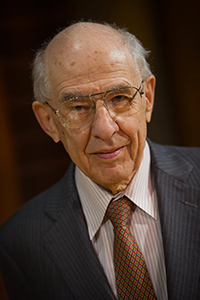One of the greatest and most influential philosophers of the past half-century – and one of my favourite professors from my undergraduate days – has died.

Putnam was not only brilliant; he was also usually right. His arguments for direct perception, moral realism, and (most famously) the causal theory of reference, as well as his arguments against skepticism, reductionism, positivism, Kuhnianism, and type-identity theories of mind, are groundbreaking and incisive. I’m not convinced by his best-known positive theory of mind (functionalism), by his dirigist politics, or by his sometime critique of metaphysical realism. (During his antirealist phase, Putnam thought that the only way we can avoid skepticism is to reject the view that truth is radically non-epistemic; but I suggest that Putnam’s own work lays the foundation for a different solution, namely, rejecting the view that belief and consciousness are radically non-alethic.) But as I’ve written elsewhere, “everyone working today in philosophy of mind, philosophy of language, or philosophy of science toils in the shadow of his revolutionary achievements.”
Addendum:
Here’s a nice piece by Martha Nussbaum about Putnam (CHT Dan Ust) – though I don’t agree with her claim that Aristotle made no contributions to philosophy of language or religion.




